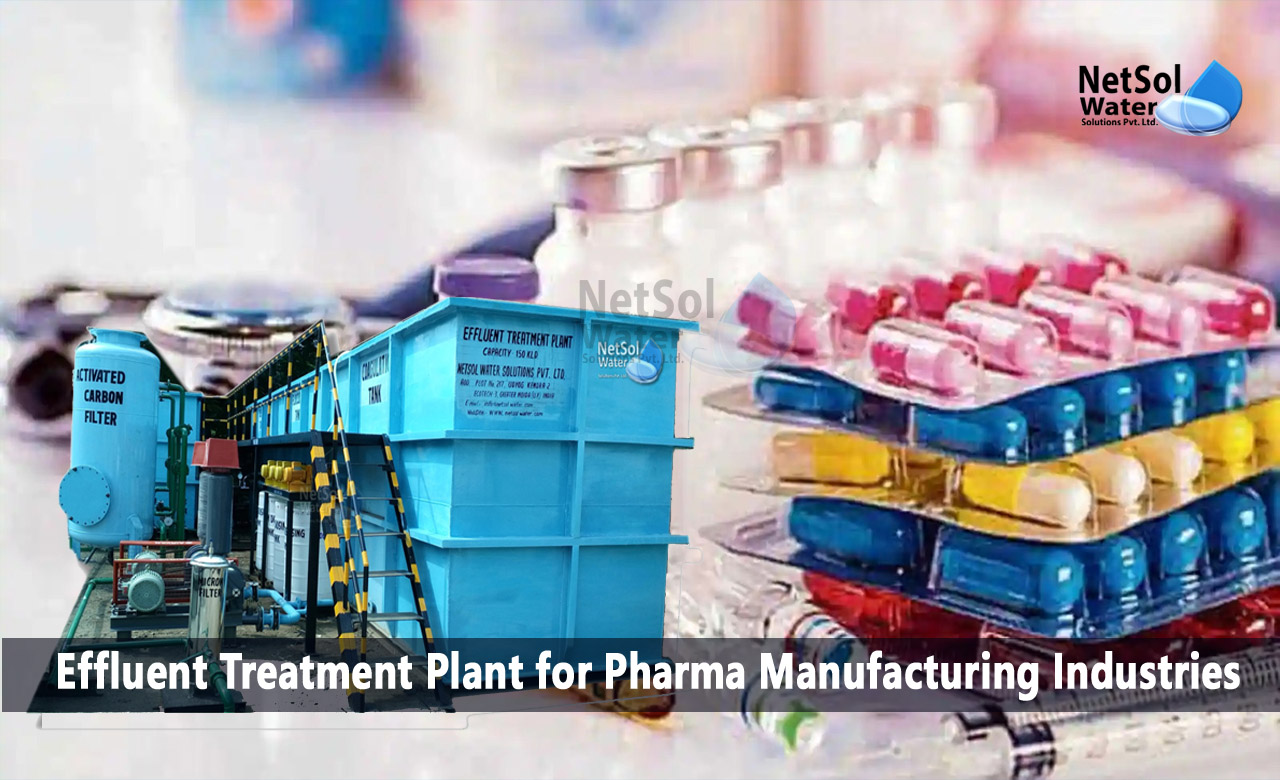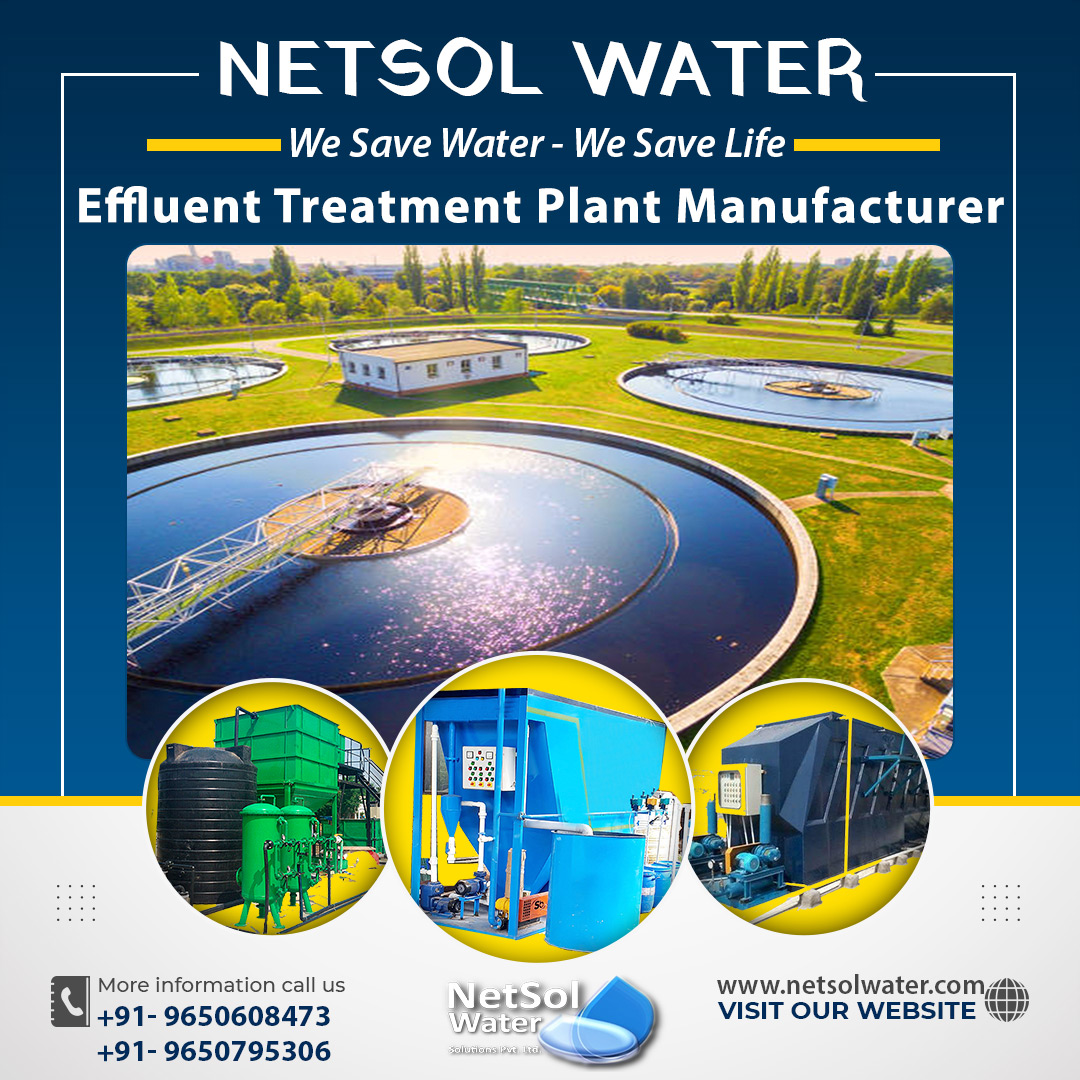Pharmaceutical manufacturing industries generate a significant amount of wastewater containing hazardous and toxic chemicals, which must be treated before being released into the environment. The Effluent Treatment Plant (ETP) is used to treat wastewater generated from pharmaceutical manufacturing units.
Now, we will discuss the working principle of ETP and the functions of various components involved in it.
About Effluent from Pharma Industry:
The waste produced by the pharmaceutical manufacturing units is a complex mixture of different materials, including harmful and dangerous compounds. The type of production method, the type of raw materials utilised, and the nature of the manufactured products all affect the characteristics of effluent from pharmaceutical manufacturing industries.
These are some of the prevalent traits of effluent from pharmaceutical manufacturing industries:
· High Organic Content:
The solvents, acids, and bases employed in the production process, as well as other organic compounds, are present in high concentrations in pharmaceutical effluent. If not handled properly, these organic molecules may be harmful and harm the environment.
· High Chemical Oxygen Demand (COD): The COD is a measure of how much oxygen is necessary to oxidise the organic substances found in wastewater. The pharmaceutical effluent has a high COD value, which denotes that there are several organic contaminants present.
· High Biological Oxygen Demand (BOD): The biological oxygen demand (BOD) is a measure of how much oxygen microorganisms need to break down organic materials in wastewater. The presence of biodegradable organic materials is indicated by the pharmaceutical effluent's high BOD value.
· High Suspended Solids: Both organic and inorganic particles are present in high concentrations in the pharmaceutical effluent's suspended solids. If not handled appropriately, these suspended solids may harm the environment.
· Presence of Heavy Metals: The pharmaceutical wastewater contains dangerous heavy metals including lead, mercury, and cadmium that can affect the environment if not adequately handled.
· High pH: Depending on the manufacturing process and raw materials utilised, pharmaceutical effluent might have a pH that is extremely acidic or extremely alkaline. If the high pH is not adequately managed, it could harm the environment.
· Presence of Pathogens: Pathogens may be present in pharmaceutical effluent, including bacteria and viruses that can lead to diseases that are spread through water.
Working Principle of ETP for Pharmaceutical Manufacturing Industry:
The Effluent Treatment Plant for pharmaceutical manufacturing industries is designed to treat the wastewater generated during the manufacturing process. The ETP for the pharmaceutical industry is a combination of physical, chemical, and biological processes that help in removing the pollutants from the wastewater.
The working principle of ETP for the pharmaceutical industry involves the following stages:
1. Screening: The first stage of ETP for the pharmaceutical industry is the screening process. In this stage, the wastewater is screened to remove large solid particles and debris. The screening process helps in protecting the downstream treatment components from damage due to the presence of large solid particles.
2. Sedimentation: The wastewater is then sent to the sedimentation tank, where the suspended solids settle down to the bottom due to gravity. The sedimentation process helps in removing suspended solids and some organic matter from the wastewater.
3. Biological Treatment: The wastewater is then sent to the aeration tank, where it undergoes biological treatment. In this stage, microorganisms are added to the wastewater, which helps in breaking down the organic matter present in the wastewater. The biological treatment process is carried out in the presence of oxygen, which is provided by aeration.
4. Clarification: The wastewater is then sent to the clarifier, where the biological sludge settles down to the bottom, and the clear water is removed from the top.
5. Tertiary Treatment: The clear water from the clarifier is then sent to the tertiary treatment stage, where coagulants and flocculants are added to remove the remaining pollutants.
6. Filtration: The treated water is then sent to the filter, where the remaining suspended particles and dissolved pollutants are removed.
7. Discharge: The treated water is then discharged into the environment, meeting the regulatory standards.
Process Flow Diagram of ETP:
The process flow diagram of ETP for the pharmaceutical industry provides an overview of the entire treatment process. The following is the process flow diagram of ETP for the pharmaceutical industry:
Summary:
The Effluent Treatment Plant plays a crucial role in treating the wastewater generated from pharmaceutical manufacturing industries. The ETP for the pharmaceutical industry consists of various physical, chemical, and biological processes that help in removing the pollutants from the wastewater. The working principle of ETP for the pharmaceutical industry involves the screening, sedimentation, biological treatment, clarification, tertiary treatment, filtration, and discharge stages. The ETP for the pharmaceutical industry consists of various components, including screens, sedimentation tank, aeration tank, clarifier, tertiary treatment components, and filter. The process flow diagram of ETP for the pharmaceutical industry provides an overview of the entire treatment process. The effective treatment of the wastewater generated from the pharmaceutical industry can help in protecting the environment from hazardous pollutants and contribute to sustainable development.
Leading manufacturer of sewage treatment plants in India.
Netsol Water is the leading manufacturer, supplier, and exporter of a quality selection of water treatment, and wastewater treatment products in India, by using advanced sewage treatment methods.
RO plants, water softeners, ETPs, STPs, DM plants, AMC, O&M, Ultra filtration, UV, Ozonation, ZLD plants, Anoxic tanks, and other goods and services are available from us. We also provide services to businesses in sectors including automotive, pharmaceutical, textile, pulp & paper, beverages, refineries, schools, hospitals, office buildings, and hotels, among others.
Call us at +91 9650608473 or email at enquiry@netsolwater.com for further information.




